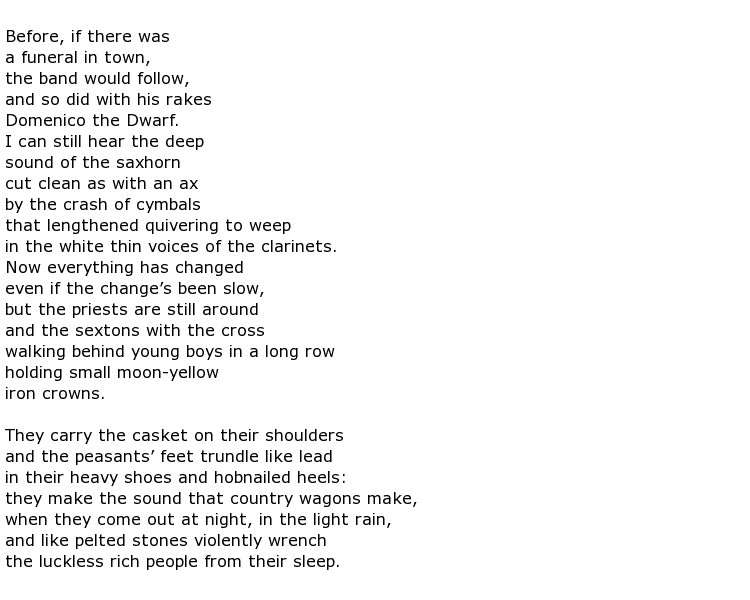 Albino Pierro was a 20th century Italian poet who was twice nominated for the Nobel prize for literature (in 1986 and 1988) despite the relatively narrow nature of his work. He came from a small town in the south of the country called Tursi and much of his later work was written in the local “Lucan” dialect. His subject matter seemed to be almost exclusively based on his hometown and when nominated for the award many saw it as a controversial move with some literary critics saying that others were more deserving. His memory is preserved in Tursi with many local festivals and events celebrating his work, yet outside of this region his name is less well known.
Albino Pierro was a 20th century Italian poet who was twice nominated for the Nobel prize for literature (in 1986 and 1988) despite the relatively narrow nature of his work. He came from a small town in the south of the country called Tursi and much of his later work was written in the local “Lucan” dialect. His subject matter seemed to be almost exclusively based on his hometown and when nominated for the award many saw it as a controversial move with some literary critics saying that others were more deserving. His memory is preserved in Tursi with many local festivals and events celebrating his work, yet outside of this region his name is less well known.
Pierro was born on the 19th November 1916 in Tursi which is part of the Italian province of Matera. He had an unhappy childhood and lost his mother while still very young. He had an eye disease which meant that he was very sensitive to light and which forced him to spend much of the daylight hours in the shadows. His eyes had a redness but he could not be described as a genuine albino, despite his name. The following lines describe his condition:

His condition improved as he grew older and he set off on a number of journeys of discovery within Italy, mostly travelling around the northern and central regions, enhancing his education as he travelled. He finally settled on Rome where, from 1939, he would spent most of his time from then on. He studied philosophy here, graduating in 1944. He had been writing poetry for some time, much of it reflecting a life of melancholy and solitude.
Up to around 1959 he wrote using the standard Italian or “Romance” languages but then moved away from this, concentrating on the dialect as spoken in his home town of Tursi. It is believed that he missed his homeland so much and had some regrets about leaving it. He would therefore evoke the atmosphere and the memories of his childhood by writing as he would have done then. Although never regarded as a great Italian poet his work did make it beyond the shores of the country. For example, in 1985, the University of Stockholm invited him to read his poetry to students there.
The poetry of Albino Pierro was certainly complex and, to some, almost indecipherable. He was one of the so-called “experimental poets” where the emphasis is very much on a form and structure which requires careful analysis and some Italian readers needed a translation into pure Italian in order for them to understand the content.
He liked to write about the rural life he had known as a child which he saw as the direct opposite of that experienced in towns and cities. Tursi was, to him, a “land of memories”. He wrote about young lovers, village drunkards, pigs, priests and muffled old women shuffling along the streets. He gave vivid descriptions of everyday events such as weddings and funerals, often drifting away from traditional verse forms into pure prose. Here is one of these prose-like poems, called The Funeral:

Pierro had a number of collections of poetry published including Liriche in 1946, Agavi e sassi (1960) and his last one in 1992 was called Nun c’è pizze de munne.
Albino Pierro died on the 23rd March 1995 in Rome, aged 78

